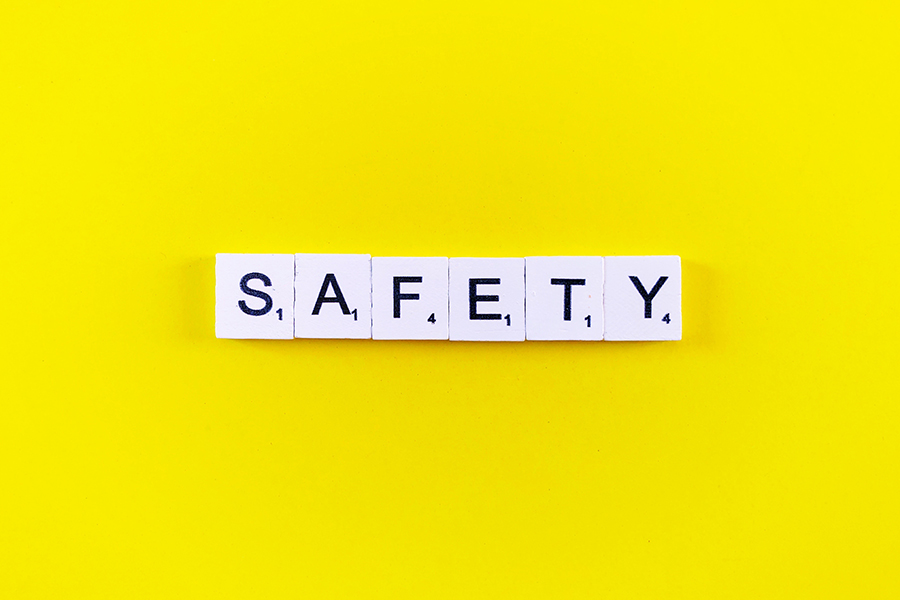Traveling can be an amazing experience – however, it can also be a bit of a hassle and, yes, even dangerous if you’re not careful! Ensuring your safety while traveling should be a top priority, and there are a few key things you can do to help make sure you have a safe and enjoyable trip.
Here are 10 essential travel safety tips:
Do Your Research
Before you travel to a new place, it’s important to do your research and learn about the local customs, laws, and risks; this will help you know what to expect and how to stay safe.
Further, it’s a good idea to read travel advisories and warnings issued by your government. You can find this information on the website of your country’s embassy or consulate.
Be Alert and Aware of Your Surroundings
It’s important to stay alert and aware of your surroundings when you’re traveling. This means being aware of who and what is around you at all times.
If you’re in a crowded place, keep an eye on your belongings and be aware of pickpockets. If you’re walking alone, be aware of your surroundings and trust your gut if something doesn’t feel right.
Keep A Copy of Your Important Documents
When you’re traveling, it’s important to keep copies of your important documents with you in case you lose the originals; this includes your passport, driver’s license, birth certificate, and insurance information.
You can keep copies in a secure online storage service or a physical location, like a safe deposit box.
Use ATMs Safely
When using an ATM, be sure to use one located in a well-lit and populated area. Be aware of your surroundings, and don’t let anyone distract you while using the machine; never give your PIN to anyone, even if they claim to be a bank employee.
Stay In Contact with Family and Friends
Most importantly, ensure you stay in contact with family and friends while traveling; this way, someone will know where you are and how to reach you if something happens.
It’s a good idea to leave a copy of your itinerary with someone at home, so they know where you’ll be and when you’re expected to return.
Try To Avoid Travelling During Holiday Periods
Try to avoid traveling during national holidays or other big vacation times whenever possible. Not only will prices be higher for flights, accommodation, and attractions, but also crowds will be larger, and pickpockets will be out in full force.
If you can’t help but travel during these times, do your best to plan ahead and be as prepared as possible.
Don’t Show Off Your Valuables
It can be tempting to want to show off your new digital camera or designer watch when you’re on vacation, but it’s also a surefire way to attract attention from thieves.
Try to keep a low profile by not wearing expensive jewelry or carrying around large amounts of cash – if you must carry valuables with you, keep them hidden away in a secure place.
Be Cautious When Using Public Transportation
When using public transportation, be cautious of your surroundings and never leave your belongings unguarded. Pickpockets love to target crowded trains and buses, so it’s important to keep an eye on your things at all times.
If possible, keep your valuables in a secure place on your body, like an inside pocket or money belt.
Keep Your Hotel Room Safe
Your hotel room should be a safe haven during your travels, but even hotels can have security risks. When you first arrive at your hotel room, take a look around and familiarize yourself with the layout.
Note the location of the fire exits and ensure all the locks on the doors and windows are working properly. Don’t leave valuables in plain sight – keep them hidden away in a safe or locked suitcase. And never give your room number to strangers.
Use Common Sense
This may seem like an obvious one, but it’s important to use common sense when you’re traveling. If something doesn’t feel right, trust your gut and remove yourself from the situation.
Be aware of your surroundings, and don’t let anyone distract you. And never leave your drink unattended – you never know what could happen.
Following these simple tips can help ensure a safe and enjoyable trip. Just remember to use common sense and trust your gut, and you’ll be sure to have a great time.
5 Steps to Creating a Personalized Travel Safety Plan
No two travelers are alike, so it’s important to tailor your safety plan to fit your specific needs. Here are five steps to get you started:
Assess Your Risk Factors
What are the specific things that could go wrong on your trip? Make a list of everything you can think of, no matter how unlikely it may seem; you can use this list to help you prioritize your safety concerns.
Make A List of Emergency Contacts
Who will you call if something goes wrong? Include phone numbers for local police, the nearest embassy or consulate, and your family or friends back home. It’s also a good idea to have the contact information for your travel insurance company on hand.
Create A Packing List
What items will you need to stay safe? This may include items like a first-aid kit, a flashlight, and a copy of your passport. Be sure to pack any prescription medications you may need as well.
Stay Informed and Up-To-Date on Current Events
What’s happening in the places you’ll be visiting? Read the news and check the State Department’s travel advisories before you go. You can also sign up for alerts from the embassy or consulate so you’ll be notified of any changes.
Pack With Safety in Mind
How can you make sure your belongings are safe? You may want to consider using a money belt or keeping your passport in a safe place. Further, you should make copies of important documents in case you lose them.
As you can see, there are a few things to consider when creating your travel safety plan; however, don’t let that stop you from exploring the world. With a little bit of preparation, you can have a safe and enjoyable trip!
What To Do If You’re the Victim of a Crime While Traveling
No one wants to think about the possibility of being mugged or having their belongings stolen, but it’s important to be prepared for such an occurrence. Here are 8 things you can do to help ensure that you get through this difficult experience as smoothly as possible:
Notify The Authorities As Soon As Possible
Regardless of where you are, it’s important to contact the local police or other emergency services as soon as possible after a crime has been committed against you.
This will help ensure that you get the help and support you need and create a record of what happened in case you need it for insurance purposes or legal action later on.
Get To a Safe Place
Once you’ve notified the authorities, your first priority should be to get yourself to a safe place. If you’re in a public area, find a nearby police officer or security guard. If you’re in a more remote location, try to get to a place where other people are around.
Collect Evidence
If you can, try to collect evidence of what happened; this can include things like photos or videos of the scene, witness statements, and anything else that might help identify the perpetrator or establish what happened.
Get Medical Help
If you were injured during the incident, getting medical attention as soon as possible is important because your health and safety should be your top priority. This will not only ensure that you receive the treatment you need, but it will also create a record of your injuries, which can be important for insurance or legal purposes.
Contact Your Insurance Company
If you have travel insurance, be sure to contact your insurer as soon as possible after the incident. They will be able to help you with any medical expenses you incur, and they may also be able to reimburse you for lost or stolen belongings.
Stay In Touch with Loved Ones
Being the victim of a crime can be a very traumatizing experience, so staying in touch with your loved ones during this time is important. They can provide you with support and reassurance and help you stay calm and level-headed.
Seek Counselling
If you have difficulty dealing with the incident’s aftermath, don’t hesitate to seek professional help. A counselor or therapist can provide you with the tools and support you need to work through your trauma and get back to living your life.
Be Patient
It’s important to be patient as you deal with the aftermath of a crime – the healing process takes time, and it’s okay to go at your own pace. Don’t try to force yourself to move on before you’re ready, and be sure to give yourself time to grieve if necessary!
You never want to be the victim of a crime; however, if it does happen, it’s important to know how to deal with it. By following these tips, you can help ensure you get through the experience as smooth as possible!





